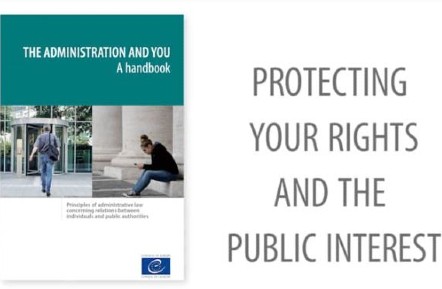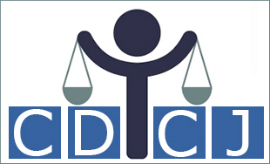The Committee on Legal Co-operation (CDCJ) is preparing a feasibility study on the drafting of a European convention on the protection of the profession of lawyer. Based on the finding and the opinions of the relevant Council of Europe bodies, the Committee of Ministers will decide whether or not to embark on a normative work to be primarily focused on the protection of lawyers in the exercise of their profession.
Current Topics

- Diminuer la taille du texte
- Augmenter la taille du texte
- Imprimer la page

The CJ/ENF-ISE will prepare guidelines or other policy instruments or practical tools to give guidance regarding the best interests of the child in the context of parental separation and care proceedings.
- Diminuer la taille du texte
- Augmenter la taille du texte
- Imprimer la page

On 17 November 2010 the Committee of Ministers of the Council of Europe adopted Guidelines on child-friendly justice, prepared by CDCJ.
CDCJ promotes and supports the implementation of these Guidelines in member states.
- Diminuer la taille du texte
- Augmenter la taille du texte
- Imprimer la page

The Committee’s current terms of reference from the Committee of Ministers for 2022-2025 include, as a possible deliverable by the end of December 2025, the elaboration of a draft recommendation to assist member States in protecting the rights of donor-conceived persons to know their origins.
- Diminuer la taille du texte
- Augmenter la taille du texte
- Imprimer la page

Statelessness remains a significant issue both globally and in Europe. The causes of statelessness are manifold, including complexities of conflicts in nationality laws, state succession, forced displacement, historical and contemporary migration, structural birth registration problems, access to nationality and related administrative practices.
- Diminuer la taille du texte
- Augmenter la taille du texte
- Imprimer la page

The lack of human rights-based migration policies and standards is leading to routine violations of migrants’ rights whether in transit, at international borders or within the territory of the countries they migrate to.
- Diminuer la taille du texte
- Augmenter la taille du texte
- Imprimer la page

The Project Group on Administrative Law (CJ-DA), set up under the authority of the European Committee on Legal Co-operation (CDCJ), was responsible for Council of Europe activities in the field of administrative law up to 2008. It was supported by a Project Group (CJ-DA-GT).
- Diminuer la taille du texte
- Augmenter la taille du texte
- Imprimer la page

The use of automated decision-making systems (ADMs) and artificial intelligence (AI) in the public sector is becoming more prevalent, as a result of the increasing demand for simplified, user-friendly, expedited, and round-the-clock available services. Governments are increasingly using AI for public administration innovation and transformation, redefining how they design and deliver policies and services.
- Diminuer la taille du texte
- Augmenter la taille du texte
- Imprimer la page

On 13 April 2016 the Committee of Ministers of the Council of Europe adopted the Council of Europe Plan of Action on “Strengthening judicial independence and impartiality”. The Plan of Action was based, inter alia, on a report on the review of the follow-up action by Council of Europe member states to Recommendation CM/Rec(2010)12 on judges: independence, efficiency and responsibilities, adopted by Committee of Ministers of the Council of Europe on 17 November 2010 and which was prepared by the European Committee on Legal Co-operation (CDCJ).
This Action Plan was on the agenda of the discussions at the high level conference of ministers of justice and representatives of the judiciary (Sofia, Bulgaria, 21-22 April 2016) – see “completed standard-setting activities”.
- Diminuer la taille du texte
- Augmenter la taille du texte
- Imprimer la page

A comparative analysis of existing data on free civil legal aid schemes in the member states (with particular attention to the key obstacles to the effective working of these schemes and to a gap analysis) has been prepared for CDCJ in order to explore the feasibility of future work in this field.
In November 2018, CDCJ decided to develop, by the end of 2020, draft guidelines in this field, after consideration of their scope. They will aim at improving the efficiency and effectiveness of legal aid schemes (including advice, assistance and representation) in the member states in the areas of civil and administrative law.
- Diminuer la taille du texte
- Augmenter la taille du texte
- Imprimer la page

Following a feasibility study in 2016, a technical study was prepared and presented to the CDCJ at its 93rd plenary meeting (14-16 November 2018). The activity continues with the preparationn of draft guidelines aiming at ensuring the compatibility of ODR mechanisms with Articles 6 and 13 of the ECHR, to be completed by 2020.
- Diminuer la taille du texte
- Augmenter la taille du texte
- Imprimer la page

The Internet and new technologies have an impact on rules of evidence and modes of proof before the courts. A comparative study on this issue was undertaken.
As a follow-up action to the study, the CDCJ guidelines were drawn up and submitted to the Committee of Ministers for adoption. The guidelines on electronic evidence in civil and administrative proceedings were adopted on 30 January 2019.
- Diminuer la taille du texte
- Augmenter la taille du texte
- Imprimer la page

Encouraged by the fruitful disccusions at the ad hoc meeting on mainstreaming gender equality issues in the process of law reform organised by the European Committee on Legal Co-operation (CDCJ), the Committee decided to continue work in this area and consider relevant proposals at their next plenary meeting to be held in September 2020.
- Diminuer la taille du texte
- Augmenter la taille du texte
- Imprimer la page

On 30 April 2014 the Committee of Ministers of the Council of Europe adopted Recommendation CM/Rec(2014)7, prepared by CDCJ, for protecting individuals who report or disclose information on acts and omissions in the workplace that represent a serious threat or harm to the public interest (“whistleblowers”).
CDCJ promotes and supports the implementation of this recommendation in member states.
- Diminuer la taille du texte
- Augmenter la taille du texte
- Imprimer la page



